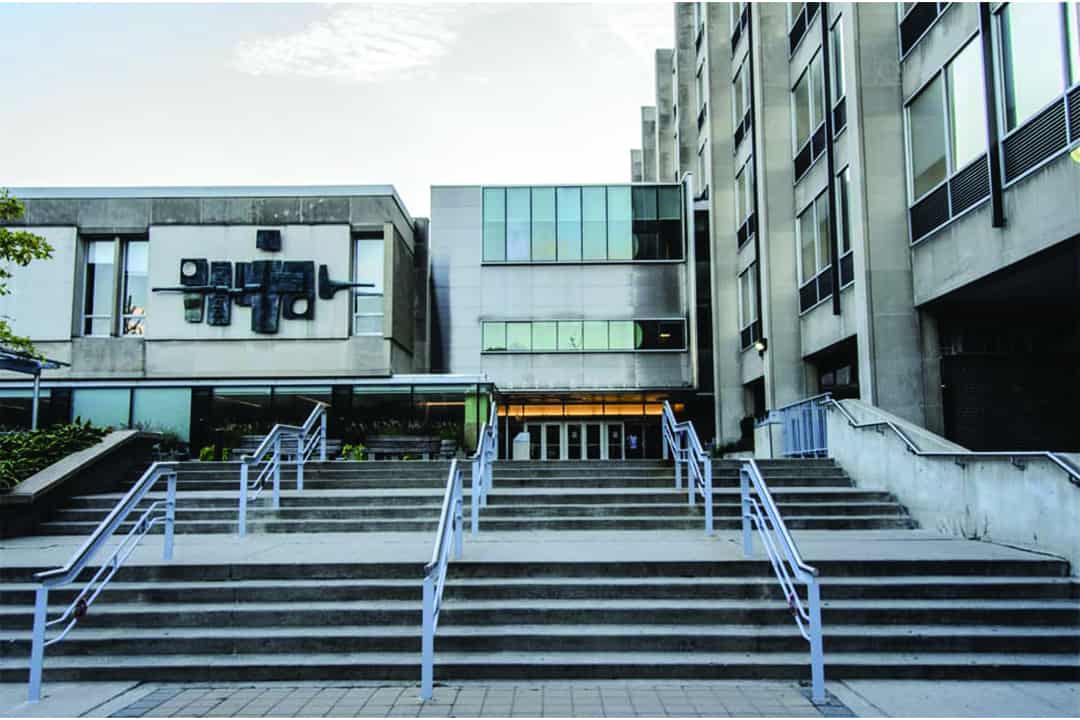On November 24, Kavita Reddy — a PhD candidate in the Department of Political Science — held a “Lunch & Learn” event at Ziibiing Lab, located within Sidney Smith Hall. The talk focused on settler colonialism within Canada’s resource-extractive economy and how liberal ideals and Canadian legal structures conflict with Indigenous governance and knowledge.
Ziibiing Lab
Ziibiing Lab is an Indigenous-led research lab focusing on Indigenous politics. Created by political science assistant professor Uahikea Maile in 2023, the lab aims to “support Indigenous peoples, thought, and movements.”
According to the lab’s website, it has three main objectives: upholding Indigenous self-determination, sovereignty, and jurisdiction; advancing Indigenous thought on politics, policy, and praxis; and defending Indigenous movements for decolonization and dignified life.
The lab hosts Lunch & Learn sessions throughout the year to educate students on various Indigenous issues and topics of significance within a Canadian context.
Reddy’s talk
Reddy’s research focuses on Canada’s role in resource extraction and the implications for Indigenous communities. She points out a contradiction between Canada’s alleged commitment to reconciliation and its reactions to Indigenous communities’ “on the ground” activism.
Reddy explores this idea by focusing on the role of injunctions within the context of Canada’s resource-extractive economy. According to the Legal Information Institute, injunctions refer to court orders requiring a person to do or cease to do a specific action that could cause harm.
In her talk, Reddy explained how injunctions “were a really strong way of reinforcing Indigenous rights in the 1980s.” Yet, in the early 2000s, she said, injunctions became a tool for Canada to combat civil disobedience. In 2018, the BC Supreme Court granted the Trans Mountain Pipeline Unlimited Liability Corporation an injunction, ordering protesters of the pipeline — including Indigenous land defenders — to stop physically stopping construction on the pipeline.
Reddy said that the legal standards one must meet to receive an injunction reflect liberal theories — instead of reflecting the ways Indigenous knowledge systems view harm. She compared liberal theories on economic harm to Indigenous peoples’ knowledge systems, and how the latter takes into consideration “the interconnectedness of nature and society” and effects over “longer time horizons” — including impacts on future generations — when conceptualizing harm.
Reddy also discussed how Canadian institutions pit Indigenous Peoples against each other and use disagreements between Indigenous groups to justify not respecting those groups’ rights to determine what happens on their lands. The Canadian government imposed an elected council system on First Nations recognized under the Indian Act, yet many Indigenous Peoples continue to respect the guidance of hereditary chiefs or other forms of traditional governance. In the case of the Coastal GasLink pipeline, the Royal Bank of Canada cites support for the project from the Wet’suwet’en elected band council despite the opposition of Wet’suwet’en hereditary chiefs.
In some instances, she noted that Western liberal legal tools such as the United Nations Declaration on the Rights of Indigenous Peoples could be helpful for protesters. The declaration calls for governments to ask for free, prior, and informed consent when adopting measures that impact Indigenous people. Reddy noted that, through blockades, Indigenous land defenders “were really bringing this idea into fruition.”
Reddy ended her talk by discussing how the Canadian government should not only give Indigenous nations the opportunity to present their cases before Canadian courts but also promote Indigenous institutions that exist outside of the Canadian government to arbitrate these cases. “In these cases, we need to not only defer judgment to Indigenous nations, but we also have to create recognized institutions that are solely Indigenous nations,” she said.



No comments to display.